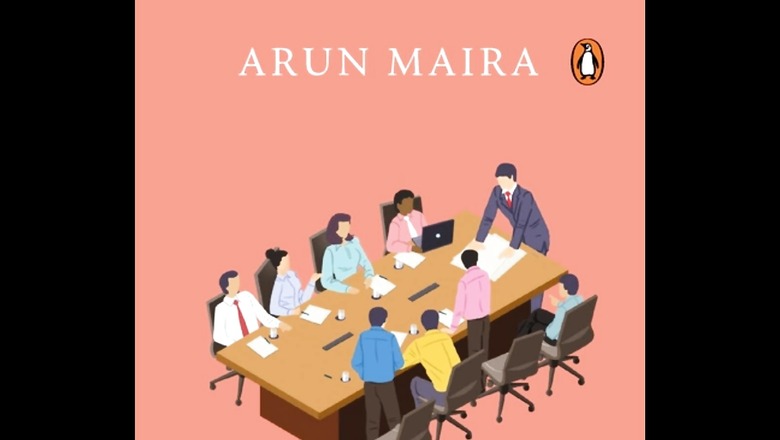
views
The Indian government’s policies are being shaped by foreign consultants, an economist complained recently in one of the innumerable webinars I attended during the Covid-19 lockdown. The webinar was about what the government should do to recover the country’s shattered economy. He said foreign consultants are advising the government on every policy: industrial, education, health, technology, financial and even the reorganization of government ministries. These young consultants, many of them fresh out of management schools, are swarming all over government, he observed.
It was not like this in 2004 when I had to even defend the government’s invitation to a handful of consultants, including myself, to participate in committees which the Planning Commission had set up for a midterm review of the tenth Five-Year Plan. We were invited to participate in our personal capacities, pro bono of course, as a service to the nation.
In the committee I had to review the condition of India’s Micro, Small and Medium Enterprises (MSME) sector and its informal industrial sector. I was happy to serve. When I came out of the conference room in the Planning Commission on the conclusion of the first meeting, I was stunned by flashing cameras and quite literally mobbed by reporters. At first, I thought they were looking for someone behind me and tried to move past them. However, it was me they wanted! Microphones were thrust towards my face. ‘Are you going to resign?’ they asked.
I was stumped. ‘Resign from what?’ I asked.
‘This committee!’ a reporter explained. ‘All the other consultants from McKinsey, KPMG and Accenture have already resigned from their committees. You have not.’
‘Resigned! Why?’ I asked.
‘Because the Left parties in the government coalition have made a public statement that the government must not allow foreigners to advise India’s national Planning Commission. Will you not resign as the others have?’
I had not been aware of this fast-spreading controversy. I had not heard the breaking news in the morning as I had been locked up in the conference room for three hours with my phone switched off. ‘Will you, or won’t you? Yes or No?’ several reporters asked. They wanted a sound bite.
‘I will not,’ I said.
‘Why not?’ they chorused.
‘I have been invited by the government to serve the country. I will continue to do so until the government tells me that my services are no longer required. I will not withdraw my services,’ I said.
I called Montek Singh Ahluwalia, the deputy chairman of the Planning Commission, as soon as I could. He had invited me and the other consultants to serve on the committees. He explained to me what had happened. The United Progressive Alliance had formed the government in a coalition between the Congress and the Left parties. Whereas Dr Manmohan Singh, the Prime Minister and chairman of the Planning Commission, and he, as deputy chairman of the commission, were keen to continue with the globalization of the Indian economy, which they had begun with the economic reforms of 1991, the Left parties were wary of the influence of the ‘Washington Consensus’ on India’s policies. To them, the appearance of foreign consultants in advisory groups, all of whom were employed by US-based consulting companies (I was with BCG as chairman of its India practice), appeared like the thin end of a big capitalist wedge.
My candid reply to the reporters earlier that I would not resign unless the government wanted me to, had already been flashed on TV screens as ‘breaking news’, making me a celebrity for the moment. Montek had already seen the flash. He said the other consultants had been pressed to resign by their partners to avoid any damage to their consultancy’s brands. He said he would understand it if I too resigned, though he would like me to continue.
The controversy attracted great attention in the media. Rajdeep Sardesai, the celebrity anchor of the NDTV show The Big Fight, asked me to participate in a debate on his show.
He said he would invite some leaders of the Left parties too to the debate. He urged me to accept, as a public discussion of differing points of view would lend clarity to the whole matter of foreign consultants in Indian advisory groups. My partners in BCG were torn. They were concerned about the damage to BCG’s brand should the debate go the wrong way. However, they left the matter to my judgement and allowed me to do what I felt was best for the country and for BCG too.
I stepped into the ring. Rajdeep had also persuaded A.B. Bardhan, general secretary of the Communist Party of India, to join in The Big Fight along with two economists, one from the famous Left-leaning Jawaharlal Nehru University and the other an economist with a doctorate from a foreign university. There were fifty spectators in the studio looking forward to a good fight, with Rajdeep whipping up their expectations (and his show’s television rating points [TRPs]).
Mr Bardhan presented his case eloquently. He said, there are millions of capable Indians who could advise the government, then why did the government need to turn to foreigners? ‘This is India’s colonial hangover,’ he said. ‘We look up to people and ideas that come from outside the country, especially the West, and look down upon our own people who know their country better.’
In The Big Fight format, there is no time to beat around the bush. One must be direct; so I was. ‘Wasn’t Karl Marx a foreigner?’ I asked Mr Bardhan. ‘Why then does your party continue to quote him and spread his ideas in India?’ I challenged him.
‘One should take the best ideas from wherever one can so long as they serve the people of India,’ Mr Bardhan defended himself. ‘However, the people who bring the ideas to India must be loyal to India and not serve foreign masters,’ he quipped.
‘Are you doubting my loyalty to my country?’ I asked.
He fumbled and then recovered. ‘No. I am not. But you have to serve your foreign masters too who pay you. You have to support their ideology.’
‘I was invited to advise the Planning Commission in my personal capacity, and as an Indian, and not as an employee or representative of a foreign consultancy,’ I countered.
‘It is hard to discriminate what is good for India unless you really know India and what is good for the country,’ he responded.
‘I have spent almost my whole life in India. I care for my country and my people. Who is to judge who cares more or less? I cannot judge whether you care more than I do.’
Mr Bardhan was very gracious. ‘I am not doubting you personally, Mr Maira,’ he said. ‘But I do worry when people look down on us and push down their ideas on us claiming they must be better because they are from abroad.’
I agreed with him on that point.
Rajdeep Sardesai ended the debate with a poll. The question was, ‘Should the Government of India have invited consultants with foreign experience to advise it?’ The results were a resounding—Yes.
This excerpt from The Solutions Factory: A Consultant’s Handbook for Problem-solving by Arun Maira has been published with the permission of Penguin Random House
Read all minute-by-minute news updates for Uttar Pradesh election results 2022, Punjab election results 2022, Uttarakhand election results 2022, Manipur election results 2022, and Goa election results 2022.
Click here for seat-wise LIVE result updates.



















Comments
0 comment